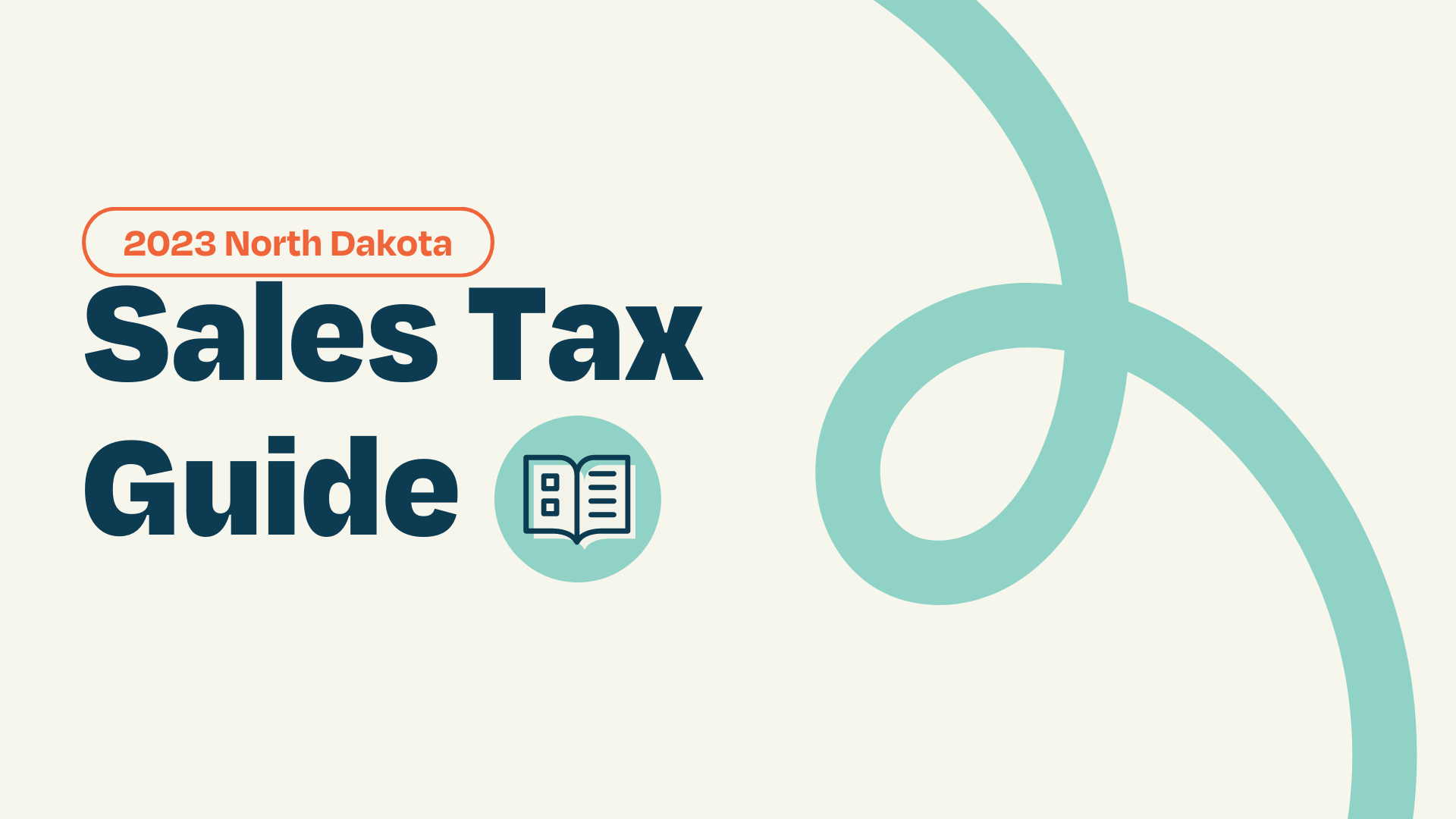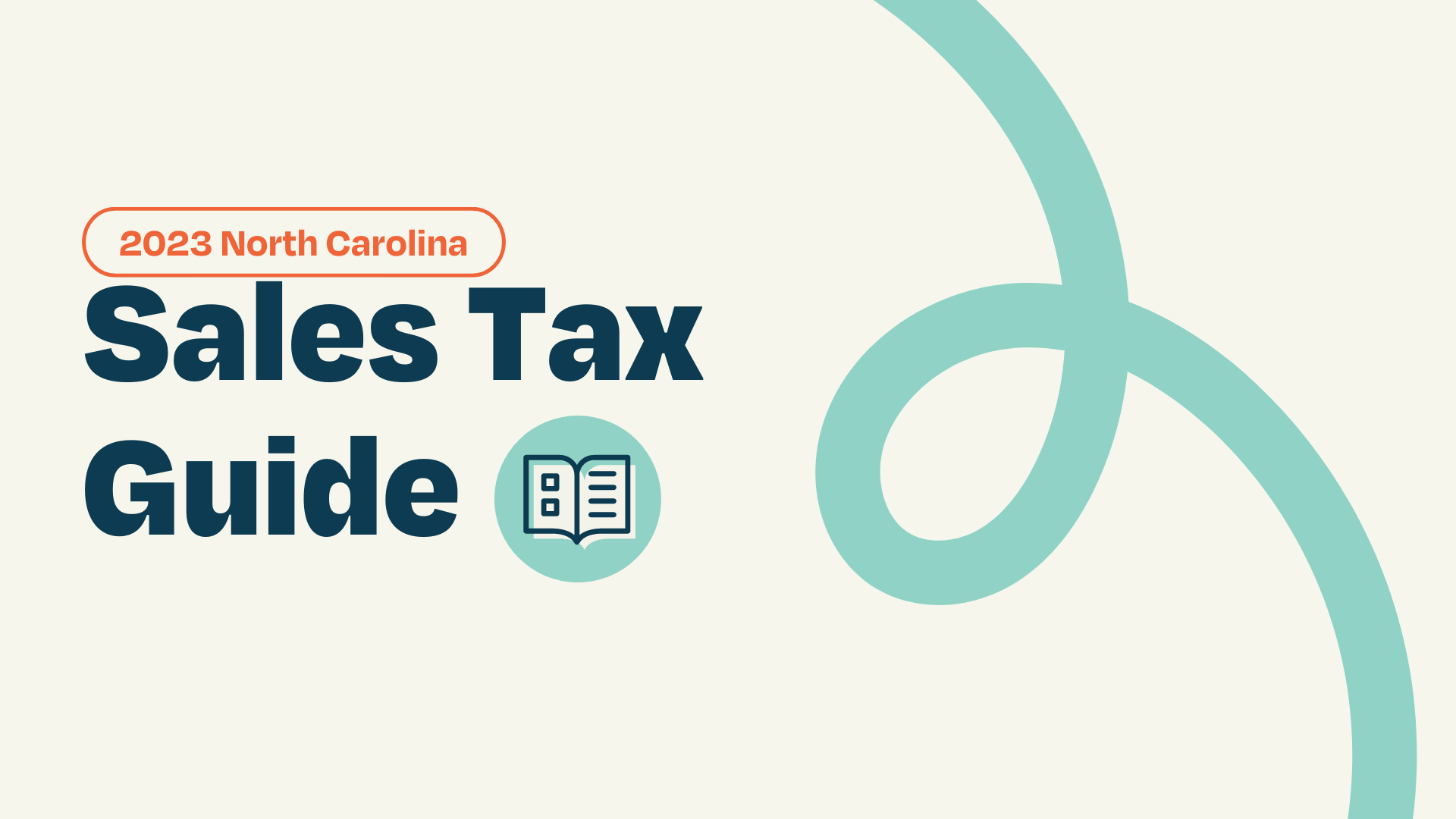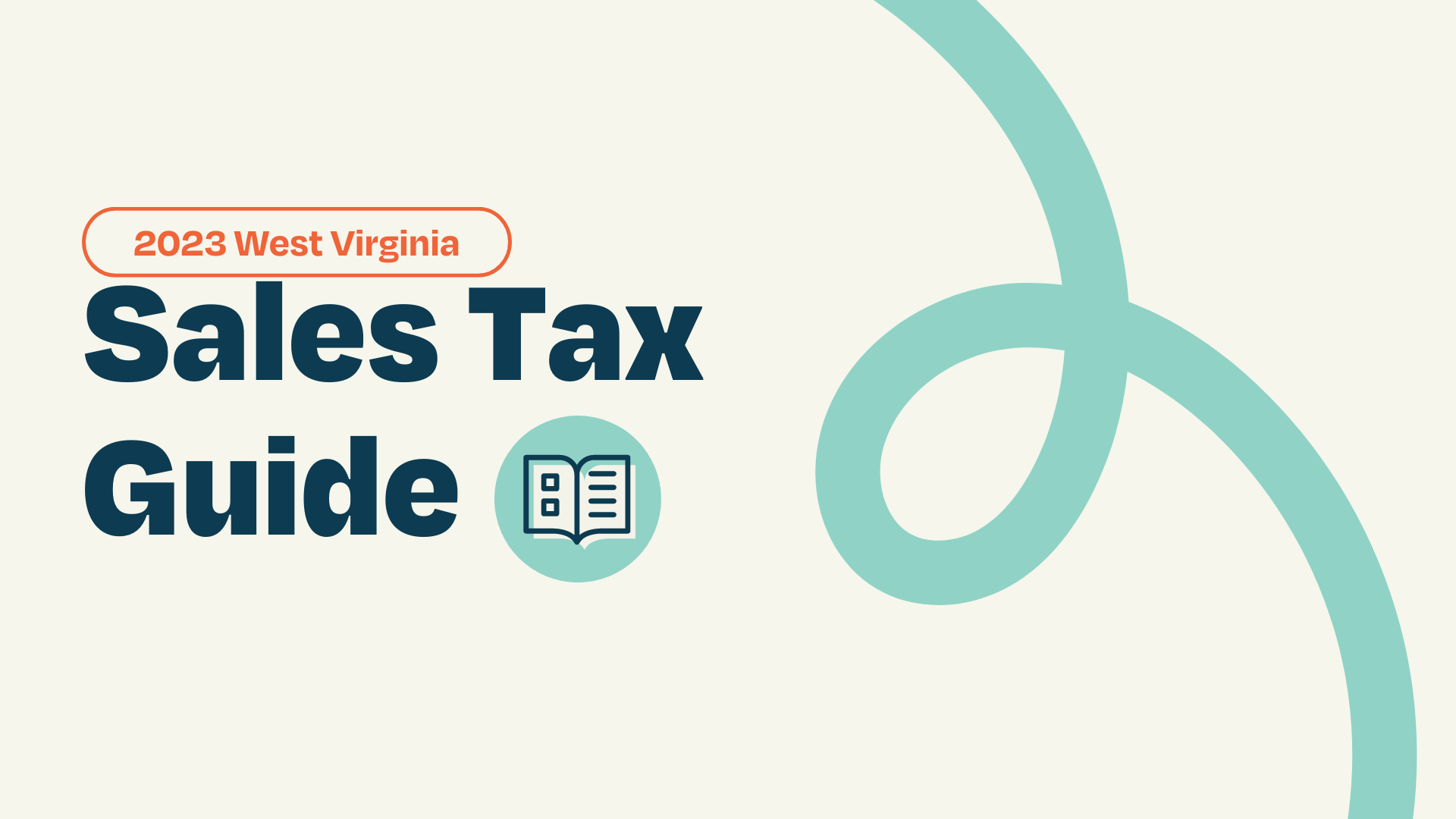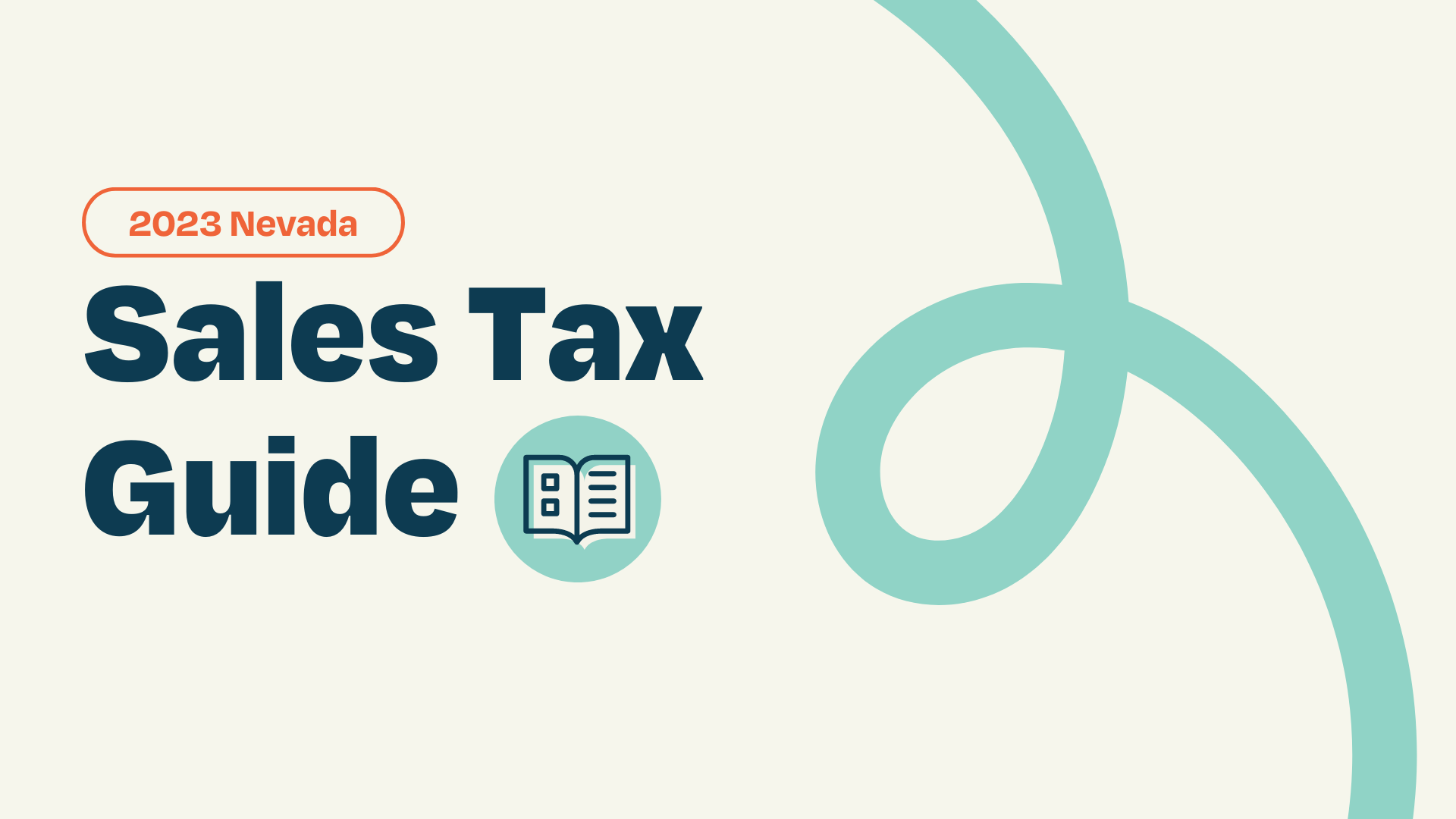1 min read
North Carolina 2023 Sales Tax Guide
North Carolina Sales Tax in a Word As a small business owner, navigating the world of sales tax can feel like a rollercoaster ride. One moment...

Embarking on the journey of running a small business in North Dakota is an exciting adventure filled with endless opportunities and, of course, a few challenges along the way. One such challenge is navigating the world of sales tax returns. But fear not, fellow entrepreneur! We're here to guide you through the winding roads of North Dakota sales tax filing.
In this blog post, we'll unravel the mysteries of when to file and pay sales tax, explore the ins and outs of filing your returns, and dive into potential penalties and incentives. We'll also share five invaluable tips to help you avoid common mistakes and emerge as a sales tax filing master.
So, buckle up and join us on this thrilling ride toward sales tax compliance, empowering your business to thrive and flourish in the Peace Garden State.
|
Table of Contents |
Navigating sales tax regulations in North Dakota can be a challenging task. To help you with the process, it's essential to know who manages the sales tax and how to contact them for assistance.
The North Dakota Office of State Tax Commissioner, also known as the North Dakota Tax Department, is responsible for administering and enforcing sales tax laws in the state. They provide guidance, resources, and support to help businesses understand and comply with state sales tax requirements.
Here's the contact information for the North Dakota Office of State Tax Commissioner:
|
Mailing Address |
Office of State Tax Commissioner 600 E. Boulevard Ave., Dept. 127 Bismarck, ND 58505-0599 |
|
Phone Numbers |
General inquiries: (701) 328-1246 Sales tax permit and registration: (701) 328-1241 |
|
|
For general sales tax questions: salestax@nd.gov For registration and permit questions: taxregistration@nd.gov |
|
Website |
By reaching out to the North Dakota Office of State Tax Commissioner, you can get answers to your sales tax questions, request assistance with registration and permitting, and access valuable resources to help you manage your sales tax obligations in the state.
One of the first steps to understanding your sales tax obligations in North Dakota is determining whether you have sales tax nexus in the state. Nexus is a connection between a business and a state that requires the business to collect and remit sales tax on sales made within the state.
There are several ways a business can establish sales tax nexus in North Dakota, including physical nexus, economic nexus, affiliate nexus, click-through nexus, and marketplace nexus.
Physical nexus is established when a business has a direct, tangible presence in the state, such as:
Owning or leasing property, like an office, warehouse, or retail store.
Having employees living and working in the state.
Storing inventory in the state, even if it's in a third-party warehouse or fulfillment center.
Conducting regular and systematic solicitation of sales within the state.
Economic nexus is established when a business has a significant amount of sales or transactions in the state, even without a physical presence.
As of 2021, North Dakota's economic nexus threshold is:
$100,000 in gross sales or
200 separate transactions
If your business exceeds these thresholds within a calendar year, you'll be required to collect and remit sales tax in North Dakota.
Affiliate nexus occurs when a business has a relationship with a separate entity that helps promote or facilitate sales within the state. Examples of affiliate nexus include:
Having a parent, subsidiary, or sibling company operating in the state.
Partnering with a third-party agent or contractor to promote, sell, or deliver products on your behalf within the state.
Click-through nexus is established when a business has an agreement with an in-state resident or entity that refers customers to the business through a website link or other means, and the business generates sales through those referrals. As of 2021, North Dakota does not have specific click-through nexus legislation.
Marketplace nexus occurs when a business sells products or services through a third-party marketplace facilitator (such as Amazon or eBay) that collects and remits sales tax on behalf of the business. In North Dakota, marketplace facilitators are required to collect and remit sales tax on behalf of their sellers if they meet the state's economic nexus thresholds.
Yes, North Dakota has a use tax law that requires consumers to pay tax on items purchased from out-of-state retailers for use, storage, or consumption within the state if sales tax was not collected at the time of purchase. Use tax rates are the same as sales tax rates and apply to both individuals and businesses. To report and pay use tax, individuals can use the Individual Use Tax Form and businesses should report it on their regular sales tax return.
Before you can begin collecting sales tax in North Dakota, you'll need to register for a sales tax license. This section will guide you through the registration process and provide important information about the costs, requirements, and additional agencies you may need to register with.
To register for a sales tax license in North Dakota, follow these steps:
Determine if you need a sales tax license: If you have nexus in North Dakota and are selling taxable products or services, you'll need to register for a sales tax license.
Gather necessary information: Before you begin the registration process, gather the required information, such as your legal business name, contact information, Social Security number (SSN) or Employer Identification Number (EIN), business structure, and North Dakota tax identification number (if applicable).
Create an account on North Dakota's Taxpayer Access Point (TAP): Visit the North Dakota TAP website and click on "Register for TAP Access." Follow the instructions to create an account.
Complete the sales tax license application: Once you have a TAP account, log in and select "Apply for a New Permit/License." Complete the sales tax license application by providing the requested information about your business, products, and services.
Submit your application: After you've completed the application, review your information for accuracy, then submit your application electronically through the TAP system.
Wait for approval: The North Dakota Office of State Tax Commissioner will review your application and, if approved, issue your sales tax license. You can check the status of your application through your TAP account. The approval process usually takes 1-2 weeks.
Display your sales tax license: Once you receive your sales tax license, display it prominently at your place of business or keep a copy readily available at your registered office.
There is no fee to register for a North Dakota sales tax license.
Yes, you'll need a Federal Tax ID Number, also known as an Employer Identification Number (EIN), to register for a North Dakota sales tax license. If you don't already have an EIN, you can apply for one through the IRS website.
Depending on the nature of your business, you may need to register with additional agencies in North Dakota, such as:
North Dakota Secretary of State: If you're forming a corporation, limited liability company (LLC), or partnership, you'll need to register your business with the North Dakota Secretary of State. Visit their website for more information and to access online registration services.
North Dakota Department of Labor and Human Rights: If you have employees in North Dakota, you may need to register with the North Dakota Department of Labor and Human Rights for unemployment insurance, workers' compensation, and other employer-related requirements. Visit their website for more information and registration resources.
North Dakota Department of Health: If your business is involved in the sale or preparation of food, you may need to obtain permits or licenses from the North Dakota Department of Health. Visit their website for more information on food safety regulations and licensing requirements.
As you complete your sales tax registration in North Dakota, be sure to research and comply with any additional registration requirements specific to your business.
Once you've registered for a sales tax license, it's time to start collecting sales tax from your North Dakota customers. This section will help you understand the state's sales tax rules, including whether North Dakota is an origin or destination sales tax state, what products and services are subject to sales tax, and how to handle exemptions.
North Dakota is a destination-based sales tax state. This means that sales tax rates are determined by the location where the buyer takes possession of the item or where it is shipped. As a seller, you'll need to collect sales tax based on the customer's shipping address or the location where they receive the product.
In North Dakota, sales tax generally applies to the sale of tangible personal property, certain services, and some digital products. Examples of taxable sales include:
Sales of tangible personal property, such as furniture, electronics, and clothing.
Sales of certain services, including repair and installation services, cleaning services, and telecommunications services.
Sales of digital products, such as digital books, music, and videos.
Generally speaking, SaaS is not taxable in North Dakota. The state does not have any specific regulations or statutes regarding the taxability of SaaS, and it is generally considered to be a service, which are not generally subject to sales tax in North Dakota.
However, there are some exceptions to this rule. For example, SaaS that is considered to be a digital good, such as a software application, may be taxable. Additionally, SaaS that is provided to a consumer in North Dakota may be taxable if the consumer does not have a business use for the software.
If you are unsure whether or not your SaaS service is taxable in North Dakota, it is a good idea to consult with a tax professional. They can help you understand the state's complex tax laws and regulations and ensure that you are in compliance.
North Dakota exempts certain products and services from sales tax.
Some common exemptions include:
Prescription drugs and certain medical supplies.
Groceries and unprepared food items.
Agricultural products and machinery used for farming.
Newspapers and periodicals.
Sales to federal, state, and local governments.
Organizations and individuals that may be eligible for sales tax exemptions in North Dakota include:
Nonprofit organizations, such as religious, educational, and charitable entities.
Federal, state, and local government agencies.
Individuals purchasing items for resale or items that will be used as an ingredient in a product intended for sale.
If your customer is eligible for a sales tax exemption, you'll need to obtain a properly completed North Dakota Sales Tax Exemption Certificate (Form ST-101) from the customer. Keep this certificate in your records as proof that the sale was exempt from sales tax.
If you lose a North Dakota Sales Tax Exemption Certificate, you should request a new copy from the customer who provided the original certificate. It's essential to maintain accurate records of all exempt sales, as you may be required to provide documentation during a sales tax audit.
After registering for a sales tax license and collecting sales tax from your customers, it's time to file and pay your sales taxes in North Dakota. This section covers important information about when to file and pay, how to file your sales tax return, potential penalties, and any sales tax incentives that may be available.
North Dakota requires businesses to file sales tax returns and make payments on a monthly, quarterly, or annual basis, depending on the amount of sales tax collected.
The filing frequency and dues dates are as follows:
|
Monthly Filing |
If your average monthly tax liability is more than $166.67, you must file and pay monthly. |
Returns and payments are due on the 25th day of the month following the reporting period. |
|
Quarterly Filing |
If your average monthly tax liability is between $16.67 and $166.67, you must file and pay quarterly. |
Returns and payments are due on the 25th day of the month following the end of the quarter (April 25, July 25, October 25, and January 25). |
|
Annual Filing |
If your average monthly tax liability is less than $16.67, you must file and pay annually. |
Returns and payments are due on January 25 of the following year. |
If a North Dakota sales tax filing date falls on a weekend or holiday, you have until the next business day to file and pay without incurring penalties or interest.
To file a North Dakota sales tax return, follow these steps:
Gather necessary information: Before starting the filing process, gather all the information you need to complete your return, such as your sales and use tax records for the reporting period, including taxable and exempt sales, as well as any credits or deductions.
Log in to your TAP account: Visit the North Dakota TAP website and log in to your account.
Select the correct filing period: Once logged in, navigate to the "File a Return" section and select the appropriate filing period for the sales tax return you need to file.
Complete the sales tax return form: Fill out the sales tax return form, providing the requested information about your sales, exempt sales, deductions, and credits. Make sure to accurately report the sales tax you collected during the reporting period.
Review your return: Before submitting your return, double-check the information you've entered for accuracy. Correct any errors to avoid potential penalties or interest.
Submit your return and payment: Once you've reviewed your return, submit it electronically through the TAP system. If you owe sales tax, make your payment using one of the accepted payment methods, such as credit card, electronic check, or ACH credit.
Keep records: Maintain records of your filed sales tax returns and payment confirmations for at least three years, as you may need them for future reference or in case of an audit.
Filing your North Dakota sales tax return online through the TAP system is a convenient, secure, and accurate way to ensure compliance with state sales tax regulations. By staying organized and filing your returns on time, you can avoid potential penalties and interest.
North Dakota may assess penalties for late filing, late payment, or underpayment of sales tax. Common penalties include:
Late filing penalty: A penalty of 5% of the tax due or $5, whichever is greater, for each month or fraction of a month the return is late, up to a maximum of 25% of the tax due.
Late payment penalty: A penalty of 10% of the tax due or $10, whichever is greater, for late payment of sales tax.
Underpayment penalty: A penalty of 10% of the underpaid tax or $10, whichever is greater, for underpayment of sales tax due to negligence or disregard of the rules and regulations.
In addition to penalties, interest may be assessed on the unpaid tax from the due date until the tax is paid.
North Dakota offers several sales tax incentives for businesses, such as exemptions and reduced tax rates for specific industries or activities. Some examples of sales tax incentives include:
Agricultural incentives: Reduced sales tax rates and exemptions for sales of farm machinery and equipment, as well as some agricultural products.
Manufacturing incentives: Sales tax exemptions for manufacturing equipment and materials used in the production process.
Energy incentives: Sales tax exemptions and reduced rates for certain renewable energy equipment and materials.
To take advantage of these incentives, you'll need to meet the specific eligibility requirements and may be required to provide documentation, such as exemption certificates or proof of qualification. Be sure to research and understand the available incentives and their requirements to ensure you're maximizing your potential sales tax savings.
Filing sales tax returns can be a complex process, but avoiding common mistakes can save time and help you stay compliant with North Dakota sales tax regulations. Here are five tips to help you steer clear of pitfalls when filing your sales tax returns:
Stay organized with your sales records: Keep accurate and up-to-date records of all your sales transactions, including taxable and exempt sales, as well as any deductions or credits. This will streamline the filing process and make it easier to complete your sales tax return accurately.
Double-check your filing frequency: Be sure you're filing and paying your sales tax on the appropriate schedule, whether it's monthly, quarterly, or annually. This is determined by your average monthly tax liability. Filing on the correct schedule can help you avoid late filing or payment penalties.
Review tax rates and exemptions: Stay informed about the most current sales tax rates and exemptions in North Dakota. Tax rates can change, and new exemptions may be introduced or existing ones altered. Regularly reviewing this information ensures you're collecting and reporting the correct amount of sales tax.
File and pay electronically through TAP: Use the North Dakota Taxpayer Access Point (TAP) system to file and pay your sales tax returns. This secure, online platform reduces the risk of errors, provides instant confirmation of your submission, and allows you to easily track your filing history. Be sure to double-check the information you enter on your return before submitting it to avoid errors that could lead to penalties.
Don't forget to file a return, even if you owe no tax: If you had no taxable sales during a reporting period, you're still required to file a sales tax return, indicating zero tax due. Failing to file a return, even when no tax is owed, can result in late filing penalties.
By staying organized, following the appropriate filing schedule, keeping up with tax rate and exemption changes, using the TAP system, and always filing a return, you can avoid common mistakes and stay compliant with North Dakota sales tax regulations. This not only saves you time and potential headaches but also helps ensure the financial health of your business
As we wrap up our exciting expedition through the realm of North Dakota sales tax returns, it's clear that with the right tools and guidance, you can conquer the complexities of sales tax compliance with ease and confidence. By staying organized, understanding filing requirements, and keeping up-to-date with tax rates and exemptions, you'll be well-equipped to avoid common pitfalls and maintain the financial well-being of your business.
Remember, at Accountingprose, we're more than just your accounting partner - we're your steadfast companions, dedicated to helping you navigate the dynamic landscape of sales tax filing and supporting your business's success every step of the way.
So, as you embark on your future sales tax filing adventures, know that you're not alone. Together, let's continue to grow and prosper in the vibrant business ecosystem of North Dakota.
|
Ready to work with a North Dakota sales tax expert? We've love to work with you! |
|
Alaska Sales Tax Guide (N/A) |
||||
|
Montana Sales Tax Guide (NA) |
||||
|
Oregon Sales Tax Guide (N/A) |
||||
|
Delaware Sales Tax Guide (N/A) |
||||
|
New Hampshire Sales Tax Guide (NA) |
||||
And don't forget to check out our blog about Economic Nexus, which serves as an invaluable resource for businesses who have sales that are subject to sales tax.
This blog is for informational purposes only and the information is accurate as of 2023-06-19. If you want legal advice on sales tax law for your business, please contact a State and Local Tax (SALT) professional. Keep in mind that sales tax regulations and laws are subject to change at any time. While we strive to keep our blog current, this blog possibly may be out of date by the time you review it.

1 min read
North Carolina Sales Tax in a Word As a small business owner, navigating the world of sales tax can feel like a rollercoaster ride. One moment...

West Virginia Sales Tax in a Word Welcome to the wild and wonderful world of West Virginia sales tax! Like navigating the state's...

Nevada Sales Tax in a Word Running a small business in Nevada can feel like hitting the jackpot, but when it comes to navigating the world of...